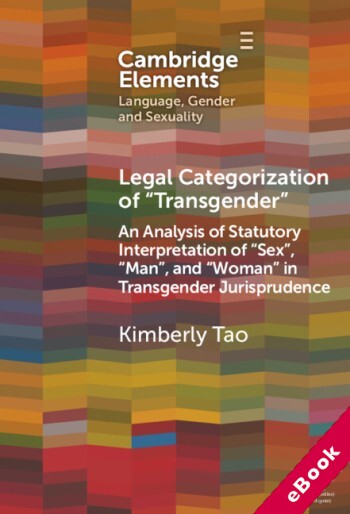
The device(s) you use to access the eBook content must be authorized with an Adobe ID before you download the product otherwise it will fail to register correctly.
For further information see https://www.wildy.com/ebook-formats
Once the order is confirmed an automated e-mail will be sent to you to allow you to download the eBook.
All eBooks are supplied firm sale and cannot be returned. If you believe there is a fault with your eBook then contact us on ebooks@wildy.com and we will help in resolving the issue. This does not affect your statutory rights.
This Element analyzes the foundational frame of legal reasoning when courts interpret the 'plain language' and 'ordinary meaning' of terms such as 'sex', 'man' and 'woman'. There is a rich and complicated line of cases on how to define these terms and how to legally categorize transgender people. When dealing with different legal issues, judges need to give a clear 'yes' or 'no', determinate answer to a legal question. Marginal categorizations could be problematic even for experts. It analyses nine decisions that relate to transgender people's workplace protection under Title VII in United States and the right to marry in United Kingdom and Hong Kong. It brings in a historical discussion of the development of interpretative practices of law and legal categorization of transgender individuals across past decades, drawing on the intricate relationship between time and statutory interpretation.